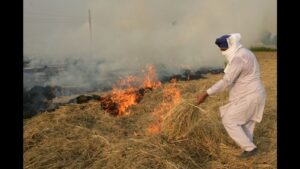Will file appeal against acquittals in 1984 riots in a week: Delhi Police tells SC | Latest News Delhi

The Supreme Court on Friday postponed its hearing on the monitoring of the 1984 anti-Sikh riots trials to May 6, granting the Delhi government additional time to challenge the acquittal of six cases by the Delhi high court last year.

A bench headed by justice Abhay S Oka directed the state to file its appeals without delay, as the six-week deadline set in February is set to expire. The court was hearing a petition by former Shiromani Gurudwara Prabhandhak Committee (SGPC) member S Gurlad Singh Kahlon, whose plea in 2018 led to the formation of a special investigation team (SIT) to re-examine 199 riot cases that were previously closed.
Additional solicitor general (ASG) Aishwarya Bhati, appearing for the Delhi government, informed the court that the appeals were in the final stages and requested one more week to file them. “We were granted six weeks. The cases have to be settled by me. It will be filed within a week,” Bhati assured the bench.
Taking note of the submissions, the bench, also comprising Justice Ujjal Bhuyan, scheduled the next hearing for May 6 and said, “We have to hear you in detail on all the cases. Meanwhile, you file the special leave petitions (SLP). We will issue directions on the next date after hearing both sides.”
Senior advocate HS Phoolka, appearing for the petitioner along with advocate Jagjit Singh Chabra, urged the Delhi government to go beyond the pending appeals and initiate probes into serious crimes that have not been investigated till date.
He pointed out that six murders had not been investigated separately, as they had been clubbed with other cases. “These cases have to be separately investigated and charge sheets filed,” he argued.
Phoolka also raised objections over the Centre’s decision not to take disciplinary action against retired police officer Shurvir Singh Tyagi, who was the inspector in charge of the Kalyanpuri police station during the riots. The petitioner alleged that Tyagi, under whose jurisdiction 400 Sikhs were killed, was later promoted to assistant commissioner of police (ACP), despite his failure to control the violence.
ASG Bhati submitted a note citing a letter from the vigilance department, which felt that disciplinary action against Tyagi at this stage would serve no purpose, as he had retired in 2003.
The court agreed to examine the petitioner’s objections in the next hearing.
Bhati reiterated the government’s commitment to justice despite the decades-long delay, referring to the recent conviction of former Congress leader Sajjan Kumar by a trial court on February 12 in connection with the riots. “Despite the lapse of over 40 years, the state is committed to bringing justice to the families of the victims,” she asserted.
Once the Delhi government files the SLPs, the petitions will be placed before the Chief Justice of India (CJI) for an administrative decision on whether to club them with Kahlon’s petition.
The SIT’s findings revealed glaring lapses in the initial handling of the cases. Of the 199 cases examined, 54 involved the murder of 426 people, while 31 cases pertained to bodily injuries suffered by 80 individuals. The remaining 114 cases were related to rioting, arson, and looting. Many cases were closed due to the inability to trace accused persons or witnesses.
The report highlighted that numerous victims and witnesses had submitted affidavits before the Justice Ranganath Misra Commission, which probed the riots, only to later retract their statements due to the prolonged delays in prosecution.
The SIT concluded that “the whole efforts of the police and the administration seem to have been to hush up the criminal cases concerning riots,” noting that police inaction and a lack of interest from authorities had ultimately led to mass acquittals.
The 1984 anti-Sikh riots erupted in the aftermath of Prime Minister Indira Gandhi’s assassination by her Sikh bodyguards. According to the Nanavati Commission’s report, 2,733 people were killed in Delhi alone. A total of 587 FIRs were registered, of which 240 were closed as “untraced,” and nearly 250 cases resulted in acquittals.




